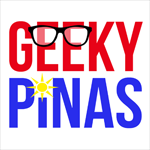Committed to provide mobile literacy applications for Tagakaulo and Tboli learners in Sarangani province, Smart Communications, Inc. is working closely with the Schools Division of Sarangani and Indigenous People (IP) communities in the province.
In March this year, the elders and culture bearers of the two IP communities gathered to validate the stories, language, numbers, letters, colors, and illustrations put together by the writers and content creators which will be converted to digital assets for the literacy apps.
“This is to ensure that the use of the Tboli and Tagakaulo cultural elements and language is accurate and culturally appropriate,” said Stephanie V. Orlino, head of Stakeholders Management at PLDT and Smart.
Biya Elizabeth A. Bitco of the Tagakaulo tribe said that the validation by the elders of all materials to be used for the app is necessary and important to ensure that information passed on to the next generation is accurate and authentic.
“This process allows us to achieve our common goal of ensuring that learning materials used are really reflective of the Tagakaulo’s heritage before it will be consumed by the community, especially by our young learners,” she said.
Wata-wanan IP School head Christopher Tanedo, who also serves as IPEd coordinator in West Maitum, said that they tweaked some contents to fit its young audience.
“Some contents were slightly changed, especially when it promotes violence. We understand that our tribes’ original stories have a level of violence in it, so we made it more child-friendly but the thought of the story remains,” he explained.
“So far, okay man among validation, naa lang mga gamay na kulang, naay mga terms na need icheck pero overall okay ang gibuhat sa writers who are also teachers from Tagakaulo and Tboli communities man pud so kabalo na sila (Since the pool of writers are mostly teachers from Tagakaulo and Tboli communities, contents are already well researched. There are just some minor corrections to make it more culturally-appropriate),” she said.
Orlino assured that the competencies in developing the learning materials are aligned with the Department of Education and the indigenization of the contents are approved by the Provincial Tribal Council and National Commission on Indigenous Peoples (NCIP).
Smart is pushing the development of tribe-centric learning apps in different languages because studies show that the managed use of digital tools can boost the literacy of young students and heighten their interest in learning.
This is also part of the company’s commitment to help the nation achieve the United Nations Sustainable Development Goal (SDG) #4: Inclusive Quality Education.



